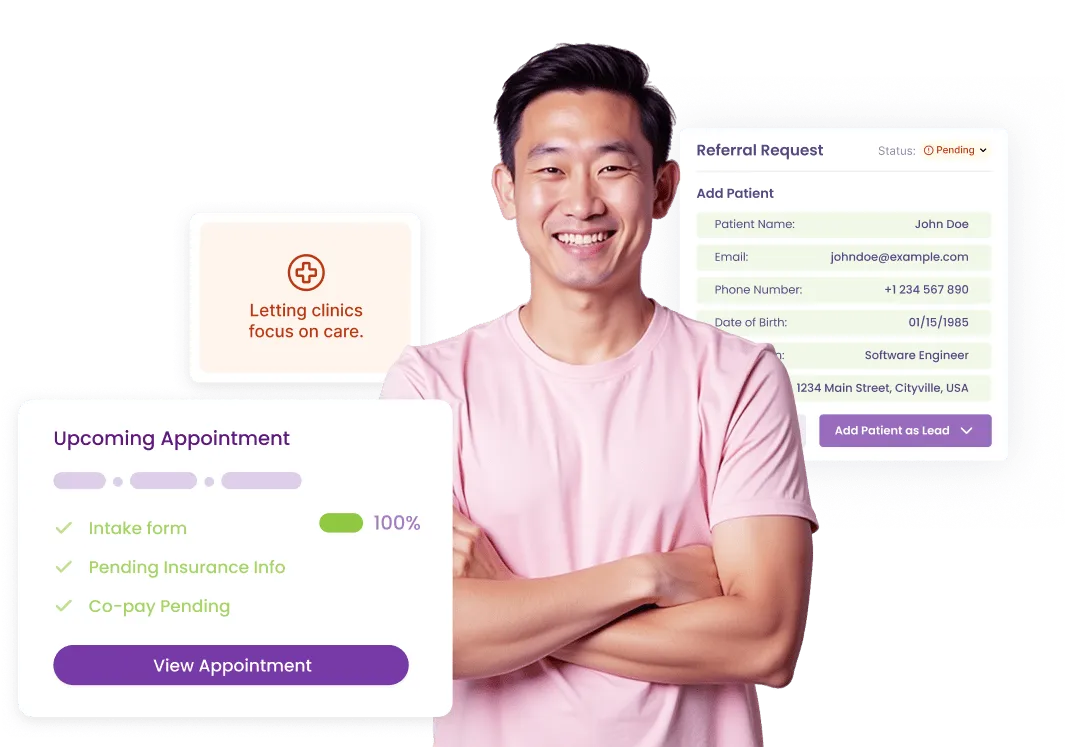H2012 – Substance Use Counseling / Behavioral Health Service
CPT code H2012 represents a distinct mental or behavioral health service, including evaluation, therapy, or care coordination.
What is CPT
H2012
?
H2012 is a specific code utilized predominantly in the context of counseling for substance use services. This section outlines the clinical purpose of the code, the documentation requirements, and key payer considerations. Providers are encouraged to ensure their clinical notes are aligned with evidence-based interventions, thoroughly detailing treatment objectives, interventions implemented, and the measurable progress of the patient. In instances where the code is billed based on time, it is essential to accurately document start and stop times to substantiate the duration billed.

Documentation Tips
To ensure compliance and facilitate accurate billing for time-based psychotherapy, document the start and stop times for each session. Include detailed descriptions of the therapeutic modality utilized, the assessment tools employed, the clinical focus of the session, patient responses to interventions, and any plans for follow-up care. For assessment instruments, maintain copies of completed tools as part of the patient's record. In telehealth scenarios, it is critical to document patient consent and the platform used for the session. Consistent use of structured documentation methodologies, such as SOAP (Subjective, Objective, Assessment, Plan) or DAP (Data, Assessment, Plan), will enhance audit readiness and support the integrity of your billing practices.

At a Glance
- Service Type: Substance Use Counseling
- Use Case: Individual and Group Counseling
- Typical Setting: Outpatient clinics, residential treatment programs, or via telehealth (subject to payer policies)
- Billing Unit: Typically billed per session or per instrument, contingent upon payer guidelines
- Common Pairings: 90791, 96127, and various psychotherapy codes, depending on the services provided
Billing Examples
For instance, a counselor may provide relapse prevention counseling sessions, meticulously documenting triggers identified by the patient, coping strategies explored, and updates to the treatment plan as they evolve. It is crucial to understand that while group therapy and individual counseling sessions may utilize the H2012 code, they must be billed under different HCPCS/CPT codes in accordance with the specific rules of each payer. A well-documented session might include notes such as: "Patient identified three primary triggers during today’s session. Coping skills were reviewed, and the treatment plan was adjusted to incorporate new strategies. Follow-up scheduled for next week to assess progress." This approach not only aids in compliance but also enhances the quality of care delivered.
Compliance Guidelines
- Prior to billing, confirm the specific coverage and authorization requirements set forth by the payer to avoid claim denials.
- It is essential to document medical necessity clearly and ensure that services rendered are linked to appropriate ICD-10 diagnoses.
- When necessary, apply the correct modifiers (e.g., modifier 95 for telehealth services) to comply with payer requirements.
- Avoid the practice of upcoding; select the CPT code that accurately reflects the time spent and the level of service provided.
- Conduct regular audits to identify potential issues, minimize claim denials, and enhance the overall quality of documentation.
Common ICD-10 Codes
Helpful links for mental health billing and documentation
- F10.20 - Alcohol dependence, uncomplicated
- F11.21 - Opioid dependence, in remission
- F19.20 - Other psychoactive substance dependence, uncomplicated
- F10.10 - Alcohol abuse, uncomplicated
- F12.20 - Cannabis dependence, uncomplicated
Additional Resources
Helpful links for mental health billing and documentation
Related CPT Codes
Helpful links for mental health billing and documentation
Got questions? We’ve got answers.
Need more help? Reach out to us.
Q1: What is the clinical application of this code?
A: H2012 is designated for clinical activities that correspond with the substance use counseling definition; it is vital that documentation supports the billed services provided.
Q2: Is it permissible to bill this code through telehealth?
A: Yes, many payers allow billing for telehealth services offered through synchronous platforms, provided that appropriate modifiers and patient consent are documented. It is important to review individual payer policies for specific guidelines.
Q3: What types of documentation might payers require?
A: Payers typically request documentation that includes the time spent, therapeutic techniques or instruments utilized, patient responses during the session, and a clear link to a covered ICD-10 diagnosis.
Q4: Can this code be billed in conjunction with other services?
A: Yes, when billing for multiple services, it is crucial to document the distinct time and rationale for each service provided. Utilize add-on codes or adhere to E/M separation rules where applicable to ensure compliance.
Q5: What are common reasons for claim denials?
A: Common denial reasons include incomplete or missing time records, lack of documented medical necessity, inappropriate modifiers, or claims that exceed specified frequency limits.

